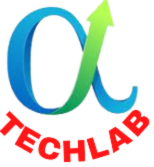9 class computer chapter-1 basic of ICT
Introduction: Basic of ICT
ICT stands for Information and Communication Technology. It refers to the use of digital technology to manage, process, and communicate information. ICT encompasses a wide range of technologies, including computers, software, networks, and the Internet.
ICT has revolutionized the way we live, work, and communicate. It has transformed many industries, from finance and healthcare to education and entertainment. Some examples of how ICT is used in different fields include:
- Education: Teachers and students use computers and digital tools for online learning, research, and collaboration.
- Healthcare: Medical professionals use ICT to access patient records, share information with colleagues, and perform research.
- Finance: Banks and other financial institutions use ICT to manage transactions, analyze data, and provide online services to customers.
- Entertainment: The entertainment industry uses ICT to create, produce, and distribute movies, music, and other forms of media.
Overall, ICT has had a profound impact on society, and its importance is only expected to grow in the future.
Important Concepts : Basic of ICT
Here are some important concepts related to the basics of ICT:
Computer hardware: The physical components of a computer system, such as the CPU, monitor, keyboard, and mouse.
Computer software: The programs and applications that run on a computer system, such as operating systems, word processors, and web browsers.
Operating system: The software that manages a computer system’s resources and provides an interface for users to interact with the computer.
Internet: A global network of connected computers that allows users to access and share information across the world.
World Wide Web: A collection of web pages and other digital content that can be accessed through the internet using web browsers.
Email: Electronic mail messages that can be sent and received over the internet.
Social media: Web-based platforms that allow users to share information and communicate with others, such as Facebook, Twitter, and Instagram.
Cloud computing: A system where software and data are stored remotely on servers and accessed over the internet, rather than stored locally on a user’s computer.
Cybersecurity: The practice of protecting computer systems and networks from unauthorized access or attacks, such as malware or hacking.
Artificial intelligence: The use of computer algorithms and software to perform tasks that would normally require human intelligence, such as speech recognition or image processing.
These are just a few of the basic concepts related to ICT. As technology continues to evolve and advance, new concepts and innovations will continue to emerge.
